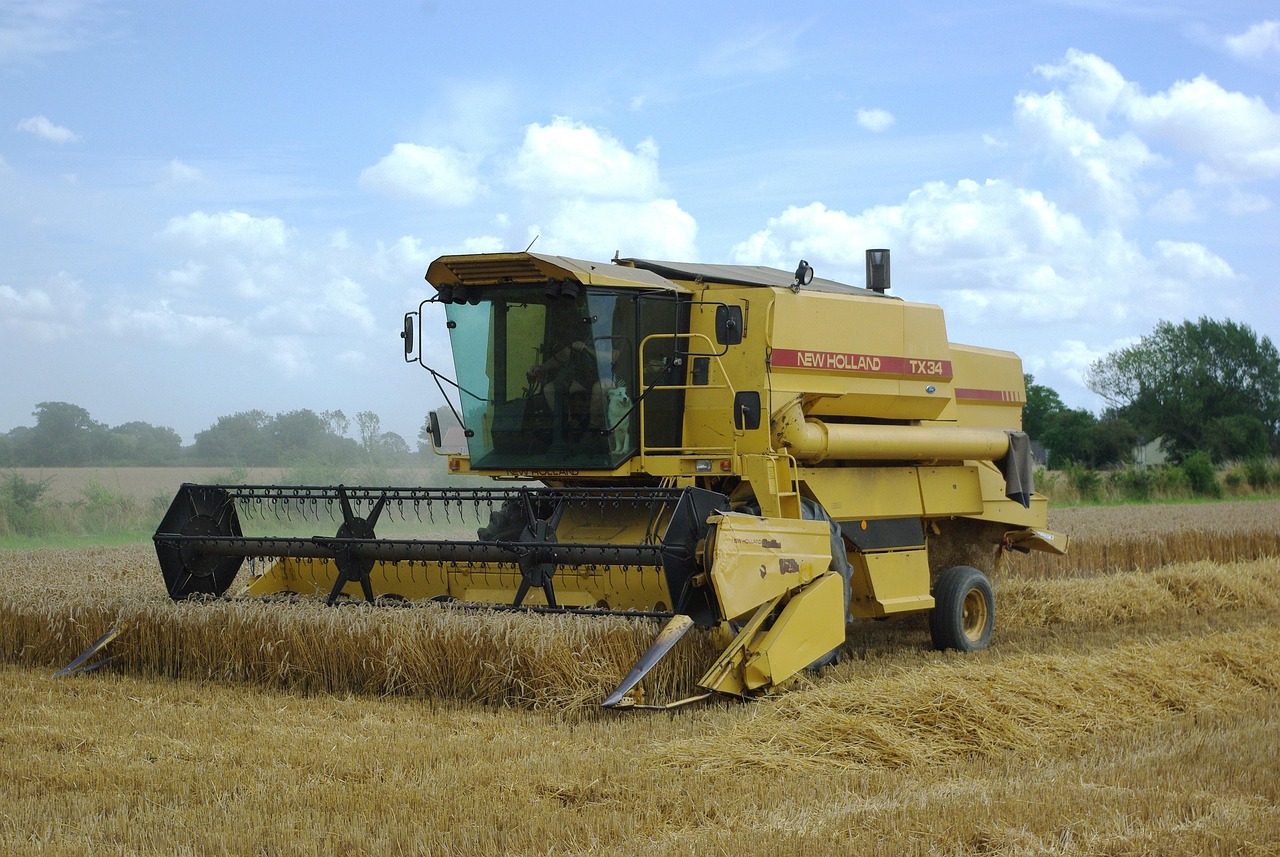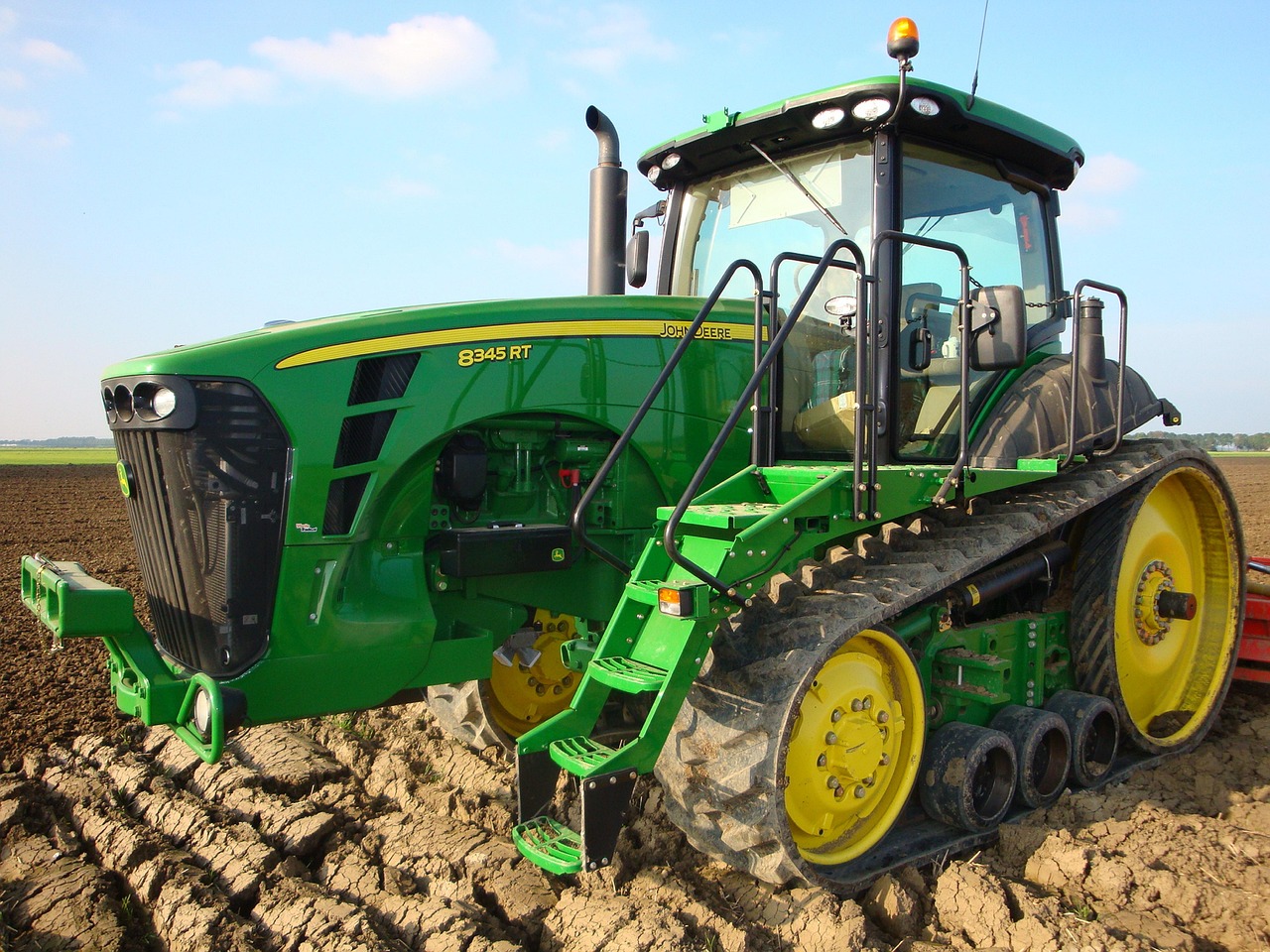
The Dawn of High-Tech Agriculture:Revolutionizing Farming with English Innovations
- 支 持:
- 大 小:
- 开发者:
- 提 现:
- 说 明:
- 分 类:业界新科技
- 下载量:22次
- 发 布:2025-05-31
#The Dawn of High-Tech Agriculture:Revolutionizing Farming with English Innovations简介
Introduction
The agricultural sector has been at the heart of human civilization since the dawn of time. It has undergone numerous transformations, from the hunter-gatherer societies to the modern-day industrialized farming practices. However, the advent of high-tech agriculture has brought about a new era of farming that is not only more efficient but also more sustainable. This essay will explore the role of English-speaking countries in the development of high-tech agriculture and how these innovations are shaping the future of farming.
The Role of English-Speaking Countries in High-Tech Agriculture
English-speaking countries, particularly the United States, the United Kingdom, Canada, and Australia, have been at the forefront of technological advancements in agriculture. These nations have a history of innovation and a strong focus on research and development, which has led to breakthroughs in areas such as biotechnology, precision farming, and data analytics.
Biotechnology
Biotechnology has been a game-changer in agriculture, allowing for the development of genetically modified organisms (GMOs) that can withstand harsh conditions, resist pests, and increase yield. English-speaking countries have been instrumental in this field, with companies like Monsanto (now part of Bayer) and Syngenta leading the way in GMO research and development. These innovations have not only increased food production but also contributed to food security and sustainability.
Precision Farming
Precision farming, also known as precision agriculture, is the use of technology to manage crop production more accurately and efficiently. This includes the use of GPS-guided machinery, drones for monitoring crop health, and software for data analysis. English-speaking countries have been pioneers in this area, with companies like Trimble and John Deere developing advanced machinery and software solutions for farmers. Precision farming has led to significant reductions in resource use, such as water and fertilizers, while increasing crop yields and profitability.
Data Analytics
The collection and analysis of data have become increasingly important in agriculture. English-speaking countries have been at the forefront of developing tools and platforms that allow farmers to make informed decisions based on real-time data. For example, platforms like The Climate Corporation, acquired by Bayer, provide farmers with weather forecasts, soil analysis, and crop health monitoring, enabling them to optimize their farming practices. This data-driven approach has the potential to revolutionize farming by making it more responsive to environmental changes and market demands.
Challenges and Opportunities
While high-tech agriculture offers numerous benefits, it also presents challenges that need to be addressed. Some of the key issues include:
Ethical and Environmental Concerns
The use of GMOs and other biotechnological advancements has raised ethical and environmental concerns. Critics argue that these technologies can lead to the loss of biodiversity, the development of superweeds and superbugs, and potential health risks for consumers. English-speaking countries must continue to engage in dialogue and research to address these concerns and ensure that agricultural advancements are both safe and sustainable.
Access to Technology
High-tech agriculture often requires significant investment in equipment and infrastructure, which can be a barrier for small-scale farmers. Ensuring that these technologies are accessible and affordable for all farmers is crucial to the widespread adoption of high-tech agriculture. English-speaking countries can play a role in this by investing in research and development that focuses on cost-effective solutions and by providing financial support for farmers to adopt new technologies.
Skills Gap
The shift towards high-tech agriculture requires a new set of skills and knowledge. Farmers need to be able to operate advanced machinery, understand data analysis, and make decisions based on complex information. English-speaking countries must invest in education and training programs to ensure that the agricultural workforce is equipped to handle these new challenges.
The Future of High-Tech Agriculture
As the world's population continues to grow, the demand for food will only increase. High-tech agriculture offers a solution to this challenge by increasing efficiency and sustainability. The future of high-tech agriculture will likely involve:
Smart Farming
The integration of artificial intelligence (AI) and machine learning into agriculture will lead to the development of smart farming systems. These systems will be able to analyze vast amounts of data, make predictions, and automate tasks, leading to even greater efficiency and productivity.
Vertical Farming
Vertical farming, or the practice of growing crops in vertically stacked layers, is an innovative approach to agriculture that can be particularly beneficial in urban areas. English-speaking countries are already exploring this concept, with companies like AeroFarms and Bowery Farming leading the way. Vertical farming can help to reduce the environmental impact of agriculture, as it requires less land and water, and can be located closer to consumers, reducing transportation emissions.
Sustainable Technologies
As the world becomes more aware of the need for sustainable practices, high-tech agriculture will continue to evolve to meet these demands. This includes the development of technologies that reduce the use of chemicals, increase water efficiency, and minimize waste. English-speaking countries have a responsibility to lead in this area, ensuring that agricultural advancements contribute to a more sustainable future.
Conclusion
High-tech agriculture is a rapidly growing field that has the potential to transform the way we grow and produce food. English-speaking countries have played a significant role in the development of these technologies, and their continued innovation will be crucial in addressing the challenges of feeding a growing global population. By addressing ethical concerns, ensuring access to technology, and investing in education, these nations can help to shape a future where high-tech agriculture is both profitable and sustainable.








评论列表 (0)